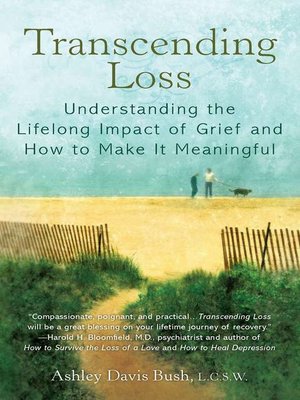
Sign up to save your library
With an OverDrive account, you can save your favorite libraries for at-a-glance information about availability. Find out more about OverDrive accounts.
Find this title in Libby, the library reading app by OverDrive.



Search for a digital library with this title
Title found at these libraries:
| Library Name | Distance |
|---|---|
| Loading... |
“Compassionate, poignant, and practical. . . . Transcending Loss will be a great blessing on your lifetime journey of recovery.”—Harold Bloomfield, MD, psychiatrist and author of How to Survive the Loss of Love and How to Heal Depression
Death doesn’t end a relationship, it simply forges a new type of relationship—one based not on physical presence but on memory, spirit, and love.
There are many wonderful books available that address acute grief and how to cope with it. But they often focus on crisis management and imply that there is an "end" to mourning, and fail to acknowledge grief’s ongoing impact and how it changes through the years.
“This is a book about death and grief, yes, but more important, it is a book about love and hope. I have learned from my experience and interviews with courageous people about pain, struggle, resiliency, and meaning. Their stories show over time, you can learn to transcend even in spite of the pain.”—from the introduction by Ashley Davis Bush, LCSW
Death doesn’t end a relationship, it simply forges a new type of relationship—one based not on physical presence but on memory, spirit, and love.
There are many wonderful books available that address acute grief and how to cope with it. But they often focus on crisis management and imply that there is an "end" to mourning, and fail to acknowledge grief’s ongoing impact and how it changes through the years.
“This is a book about death and grief, yes, but more important, it is a book about love and hope. I have learned from my experience and interviews with courageous people about pain, struggle, resiliency, and meaning. Their stories show over time, you can learn to transcend even in spite of the pain.”—from the introduction by Ashley Davis Bush, LCSW







